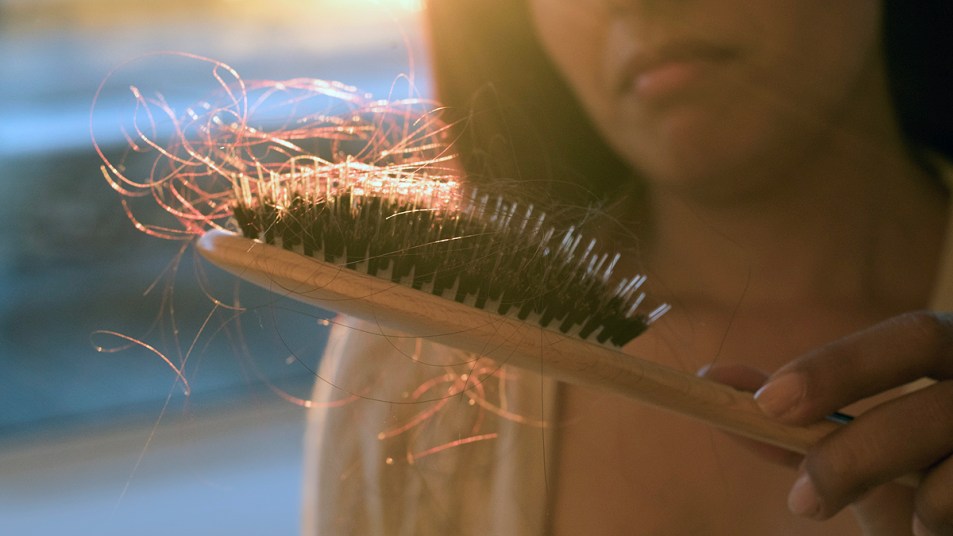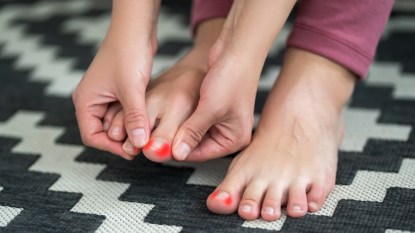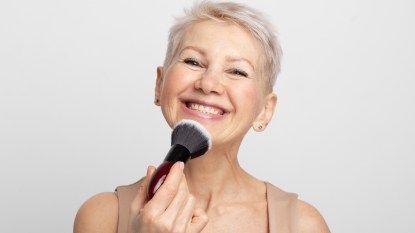Stress-Related Hair Loss Is Real — But There’s a Simple Way to Reverse It

We can all agree that life can be stressful. Unfortunately, stress can come with side effects, including one we never want to hear: hair loss.
If you’ve noticed larger swaths of hair coming out of your head after showers or abnormally-thin patches of hair on your scalp, you could be suffering from stress-related hair loss. But this doesn’t mean you hair is gone for good. According to a study authored by Harvard University researchers and published in the journal Nature, stress does in fact lead to hair loss, but it isn’t permanent.
Ya-Chieh Hsu, Associate Professor of Stem Cell and Regenerative Biology at Harvard and senior author of the study, explained that he and his lab wanted to investigate the ways in which stress affects stem cell biology and tissue biology. Intrigued by the potential mechanisms that could stop hair growth, the research team used mice as their subjects and monitored the effects of stress on their hair follicles. They found that in mice with chronic stress, hair follicle stem cells — cells that can develop into many different types of cells and work as repair cells — stayed in a resting phase for a long time and didn’t regenerate tissues. The reason? Corticosterone, the main stress hormone released by the adrenal glands in mice, was raised in response to stress.
Elevated levels of corticosterone directly affected the dermal papilla, which are a cluster of cells just underneath the hair follicle that activate stem cells. Normally, the dermal papilla activate the hair follicle stem cells and result in hair regrowth. With corticosterone muting the effect of the dermal papilla, however, the mice were unable to form new hair and experienced hair loss.
In humans, the body releases cortisol in response to stress. With this in mind, Hsu and his team were able to conclude that stress directly impacts the growth of hair in humans.
Fortunately for us, the study didn’t stop there. The research team found that when they removed the stress hormones, the resting phase in hair follicle stem cells became very short. The mice therefore regularly entered growth phases and continued to regenerate hair follicles for the rest of their lives, even as they reached old age.
In humans, it might not be possible to simply remove the stress hormones from hair follicles. However, Hsu and his team found out that they could introduce Gas6 — a molecule that can activate hair follicle stem cells — into the dermal papilla cells to counteract stress hormones. For clarity, Gas6 is naturally produced by the dermal papilla and activates stem cells, but gets muted by stress hormones.
“Under both normal and stress conditions, adding Gas6 was sufficient to activate hair follicle stem cells that were in the resting phase and to promote hair growth,” Sekyu Choi, the lead author of the study, explained. Could this molecule eventually be used in hair serums to promote hair growth in humans? Choi believes that it’s certainly possible.
While we wait for Gas6 growth serums to hit the shelves, we can work to stop excessive hair loss by reducing stress in our lives. Whether you take up a stress-relieving activity, increase your exercise, or catch up on sleep, finding ways to reduce stress will give you plenty of long-term benefits, including hair regrowth.













